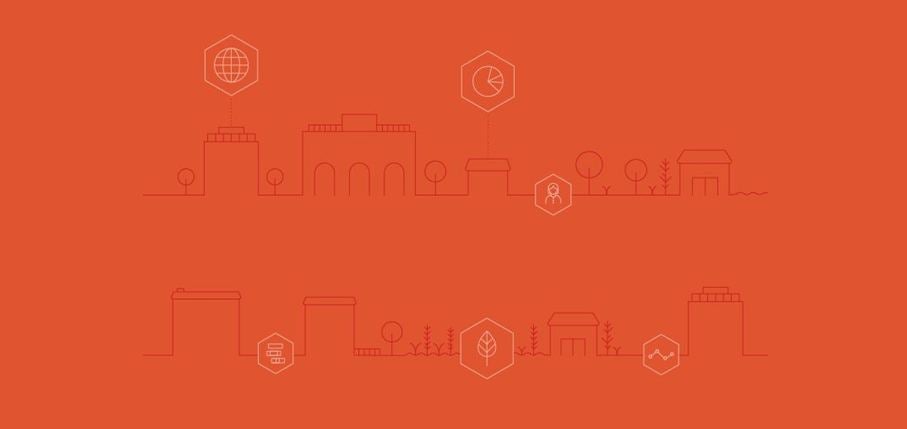By Andrew Nicklin, Director of Open Data at The Center for Government Excellence at Johns Hopkins University
Greater density in cities and their surroundings challenges our governments to provide effective services to their residents, businesses, and visitors, but it also allows for greater efficiency.
Whether trying to comprehend the expectations of thousands of people or fulfill the needs of millions, governments increasingly use data to effectively achieve their objectives. They create, collect, share, and buy data to inform decisions.
Below, I describe a few examples that illustrate how open data can empower decision-making and public policy.
1 Improve public health
San Francisco publicly shares restaurant inspection data, which Yelp displays within business listings. This information helps people decide where to eat, and it pressures restaurants to have better food handling practices. The net effect is improved public health. Since the data is open, it isn’t just Yelp and its visitors who can take advantage of the data; other platforms like CitySearch or Zagat can do so as well – not to mention health researchers.
2 Keep the community informed
In Charlotte, NC, Lexington, KY, New York, NY, and Seattle, WA, a tool called Citygram keeps people informed about issues in their community. Citygram monitors a city’s stream of open data to send emails and text messages to subscribers, and it can even be used to feed data into other modern software applications. In Seattle, Citygram includes 911 calls, various types of issued permits, and potential code violations. In other cities, companies monitor similar open data streams to identify building violations and help property managers resolve them quickly.
3 Reduce automobile accidents
Performance Plus is a program in Las Vegas which measures a wide variety of conditions across the city, and sets goals for change. In one effort to reduce automobile accidents, Las Vegas’ Public Works Department identified 50 intersections that data showed to be the most dangerous, and redesigned them. As a result, the number of accidents at those intersections has been reduced by 23%.
4 Improve neighborhoods
New Orleans had a significant problem with blight – vacant and abandoned properties – even before hurricane Katrina struck in 2005. In recent years, government and community leaders used data analysis to accelerate the process of legally declaring a property abandoned so it may be repurposed. The city has helped transform more than 13,000 of these properties, while engaging the community. Monthly public meetings, open data, and the Blightstatus web site allow visitors to check on the progress of properties in their neighborhood.
Please visit www.whatworkscities.org.
You can also follow What Works Cities on Twitter and on Facebook.
Media inquiries: please contact Sharman Stein [email protected].




Leave a Reply